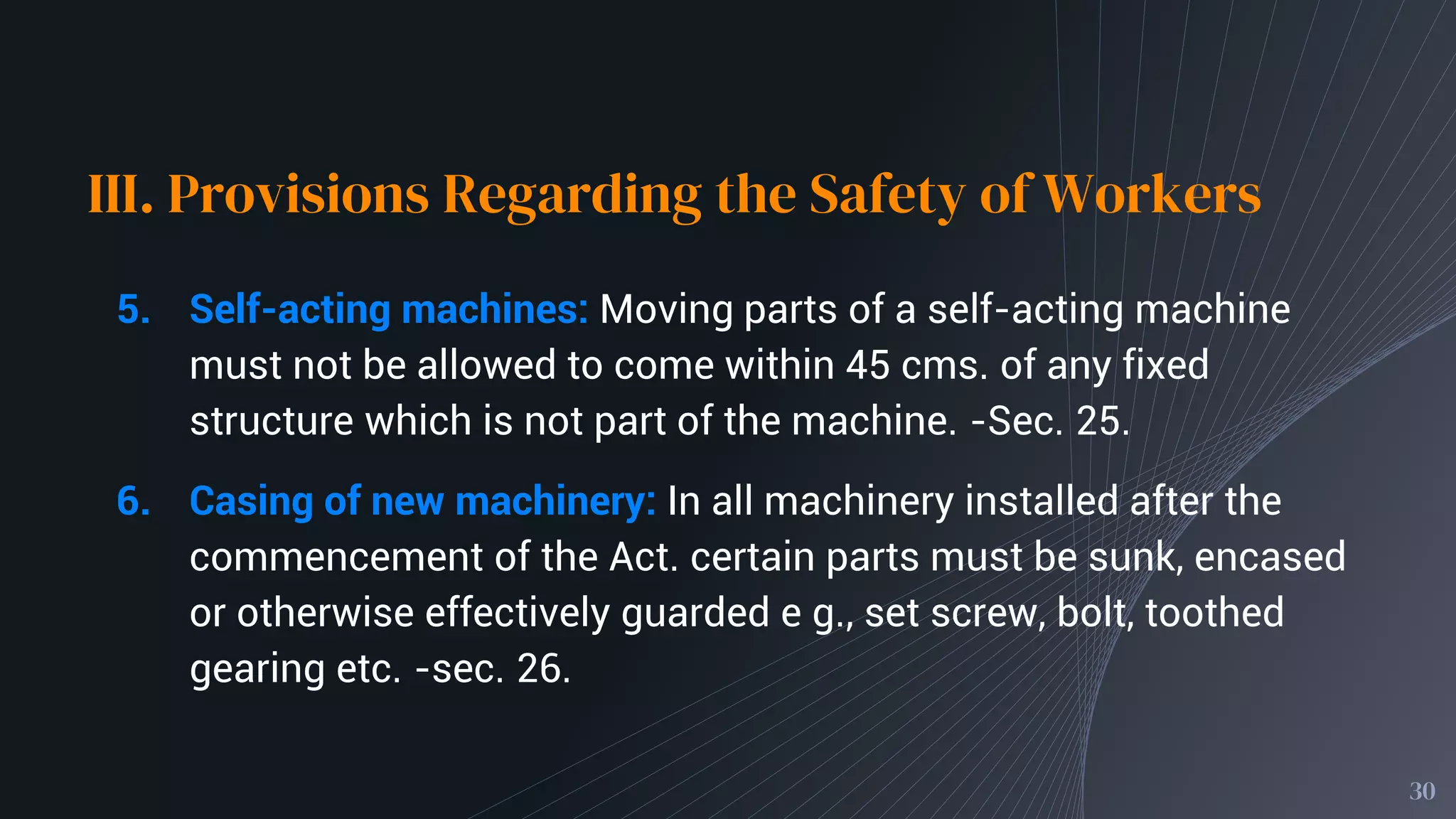The Factories Act of 1948 regulates work conditions in manufacturing establishments across India, detailing provisions for the health, safety, and welfare of workers. It outlines statutory measures such as cleanliness, waste disposal, and safety protocols to protect employees within factories. The act has undergone multiple amendments to enhance worker protection, including comprehensive guidelines on health conditions, safety measures for machinery, and facilities for welfare.
















































